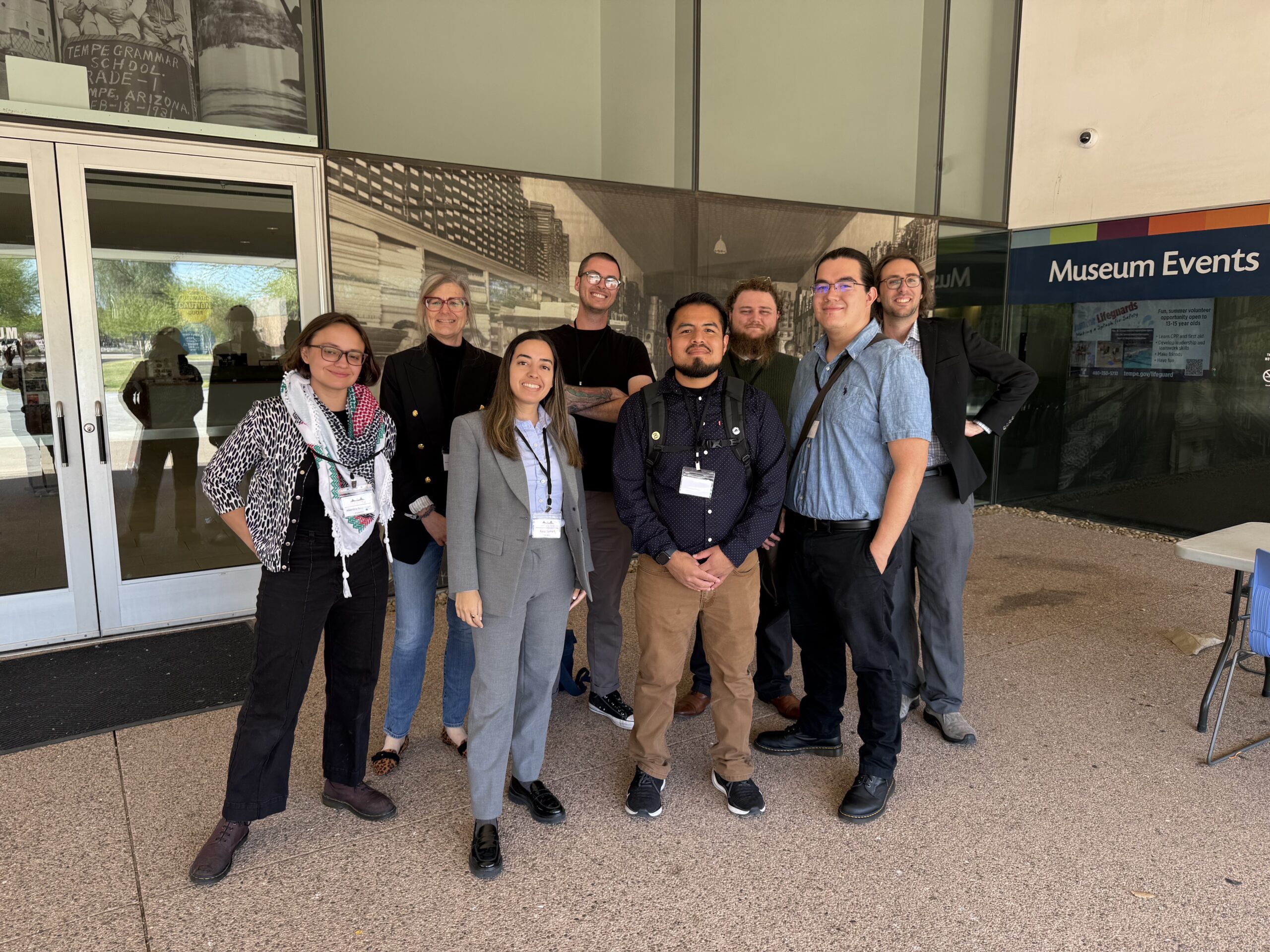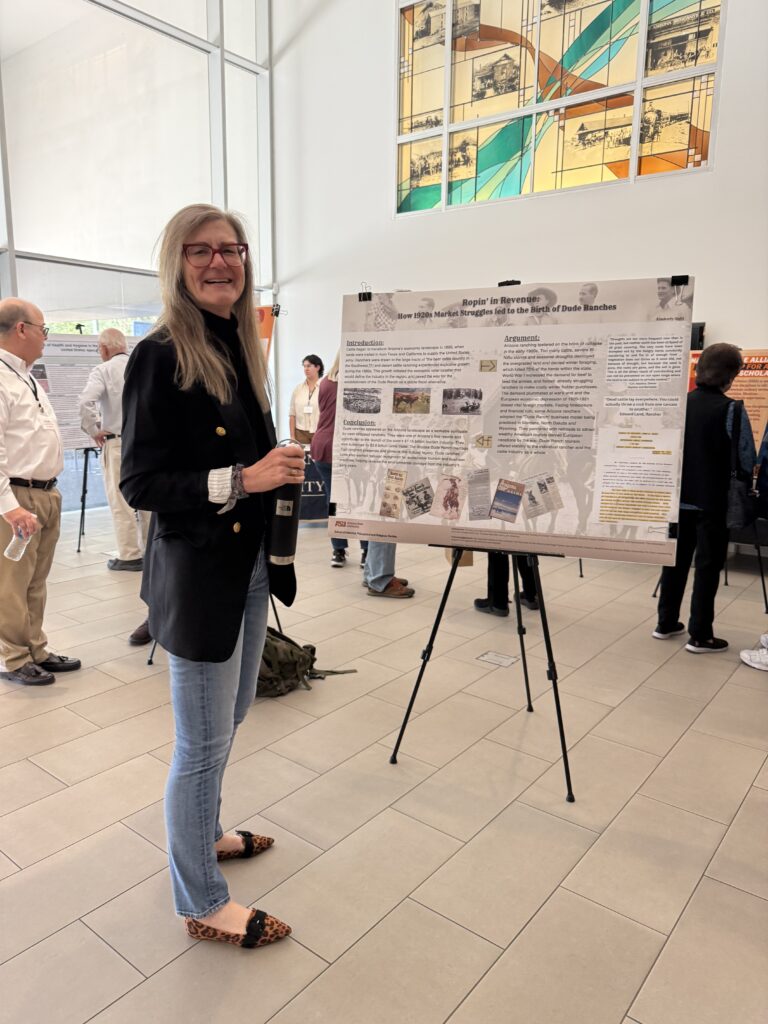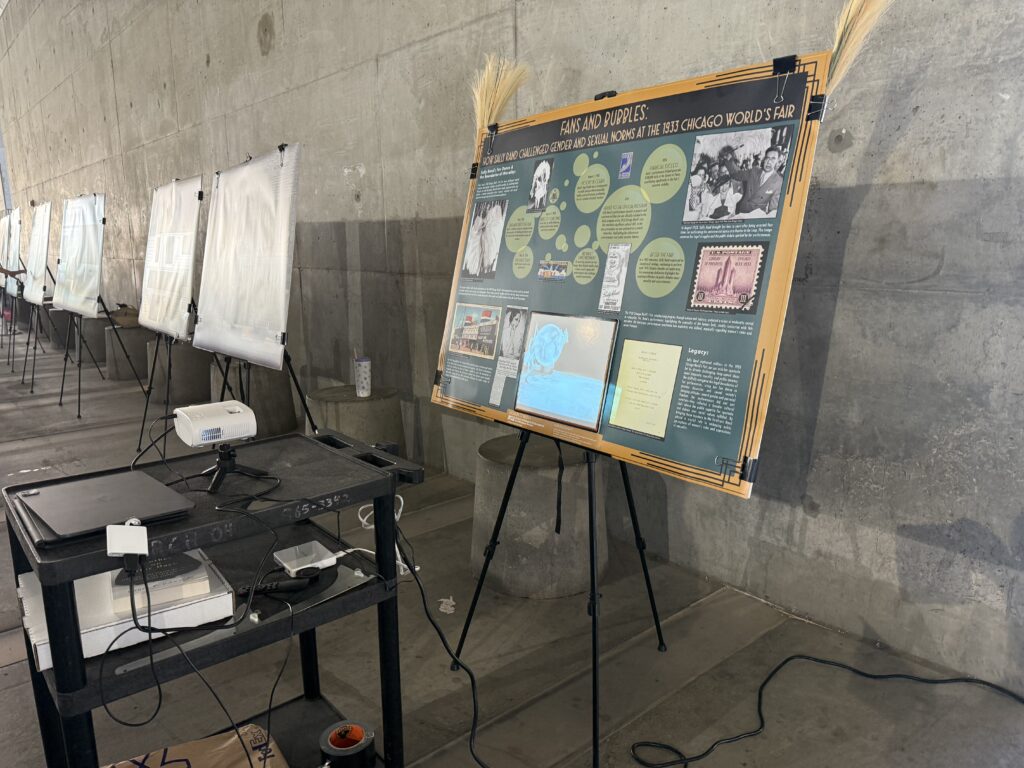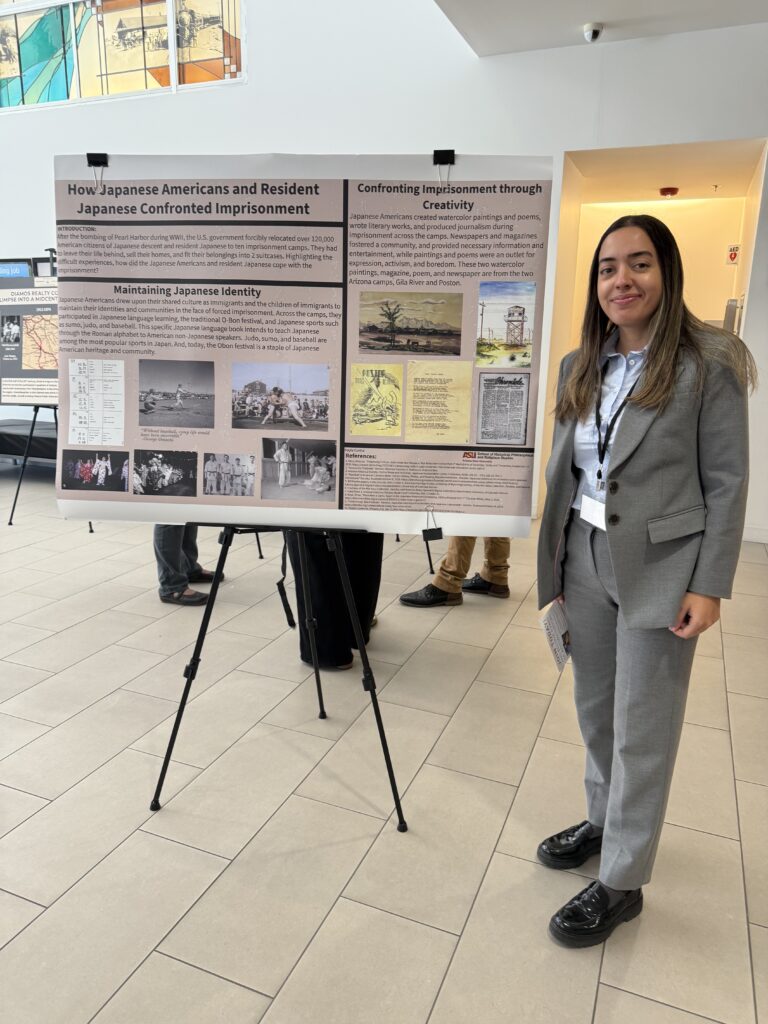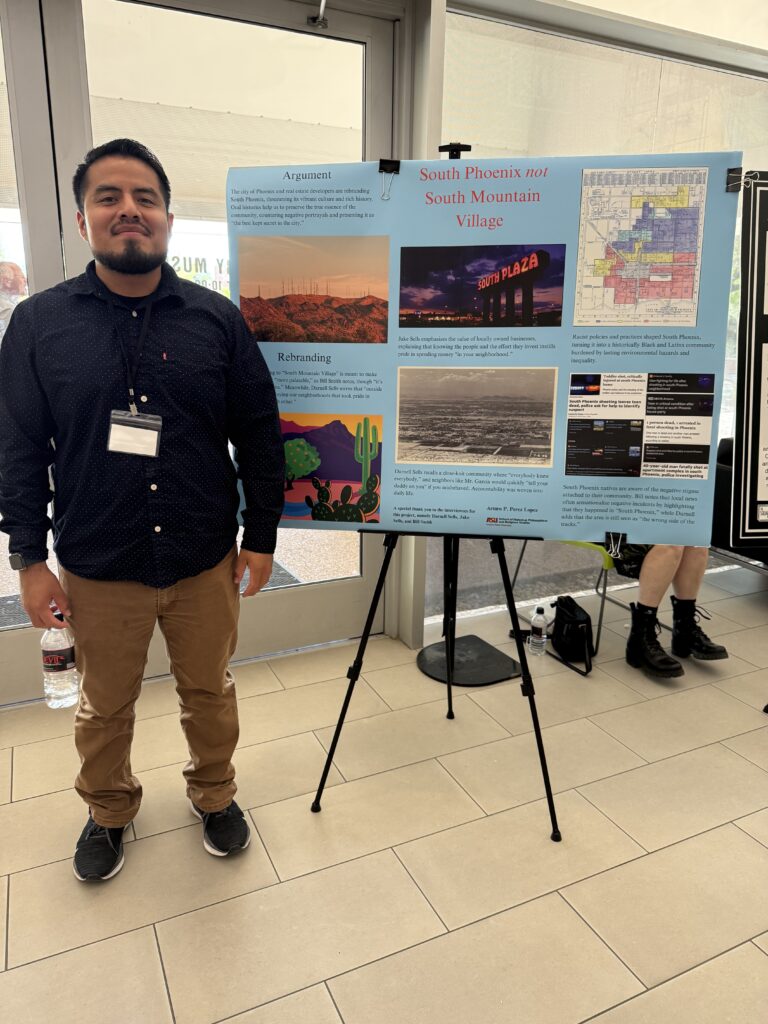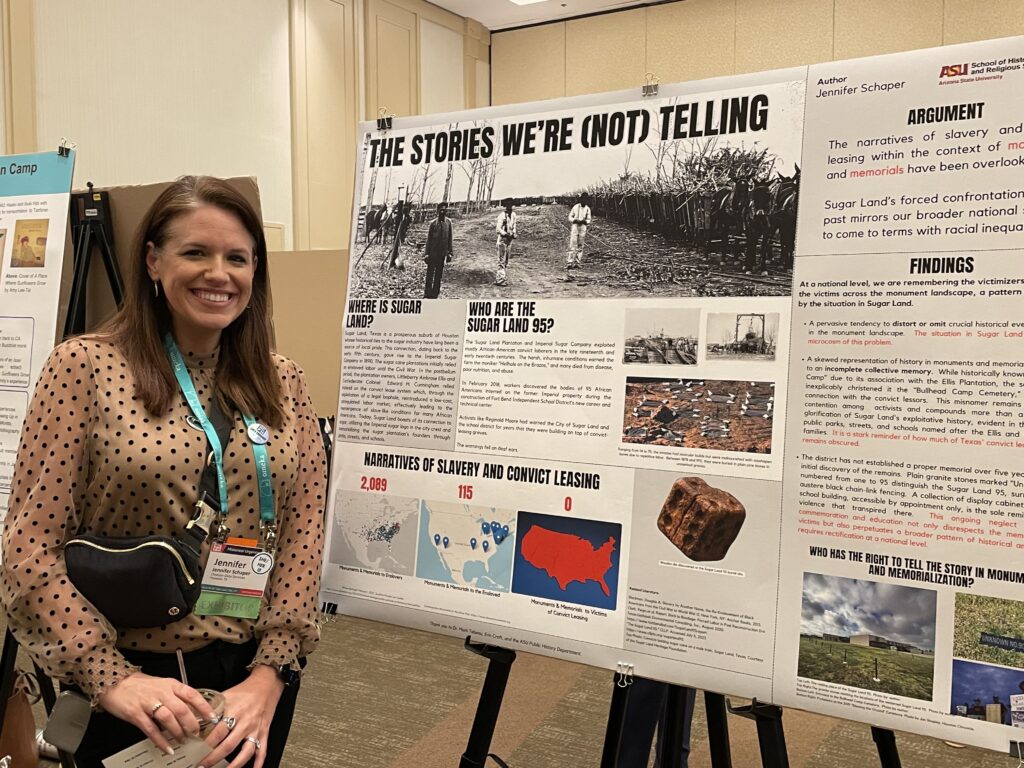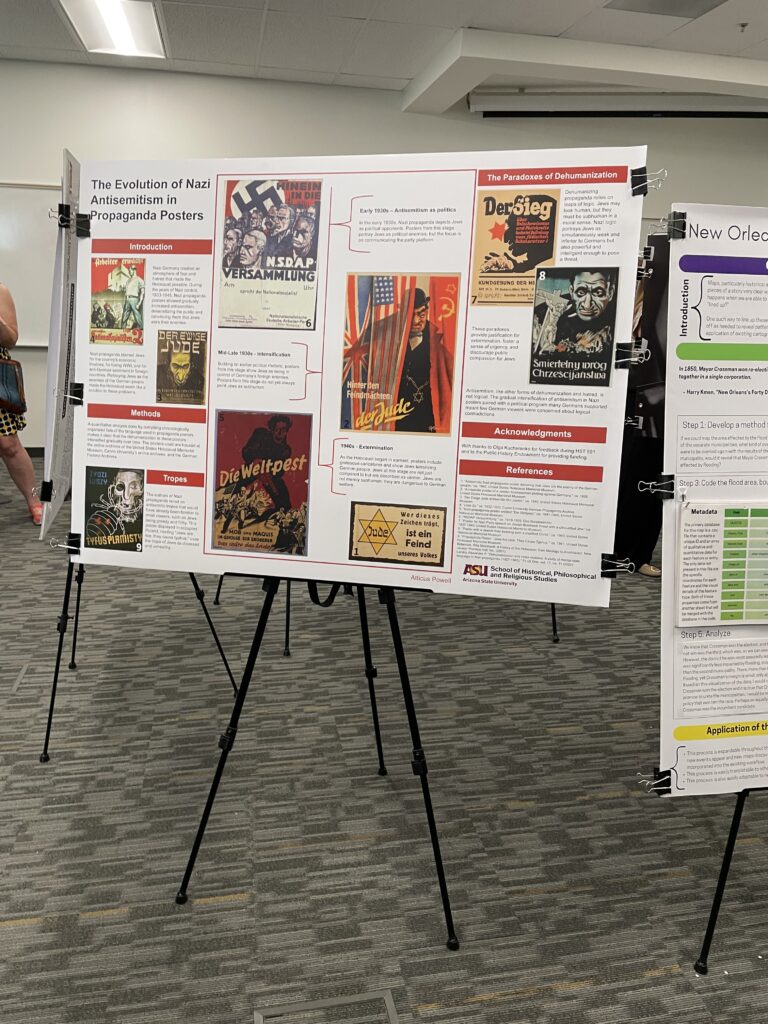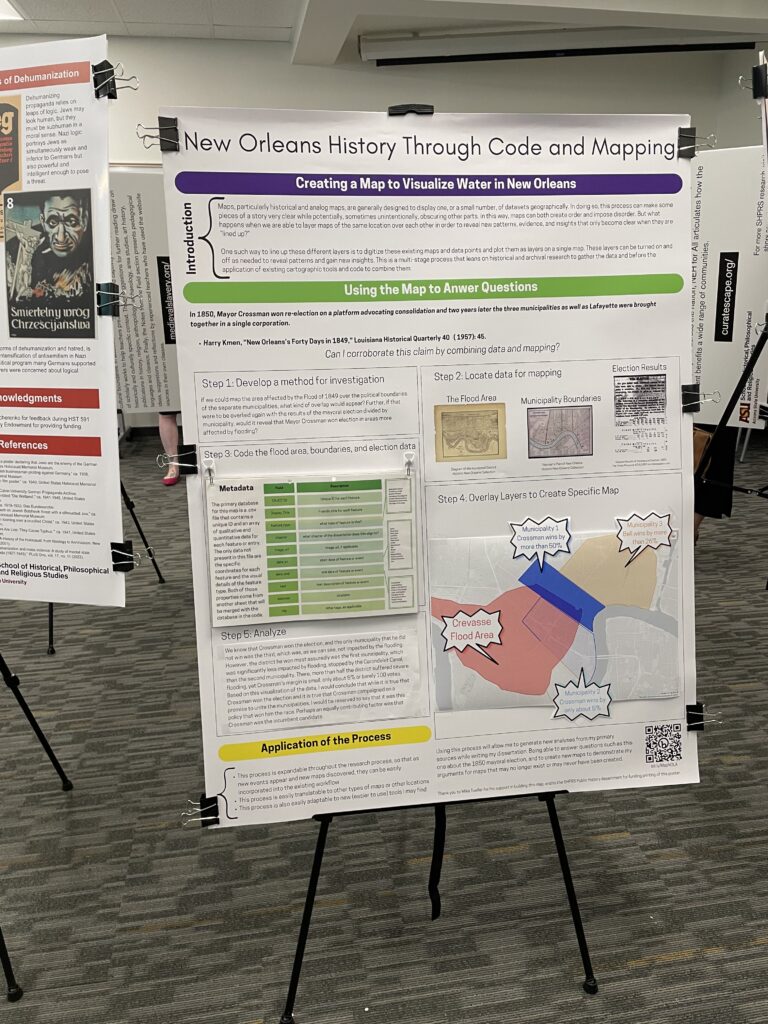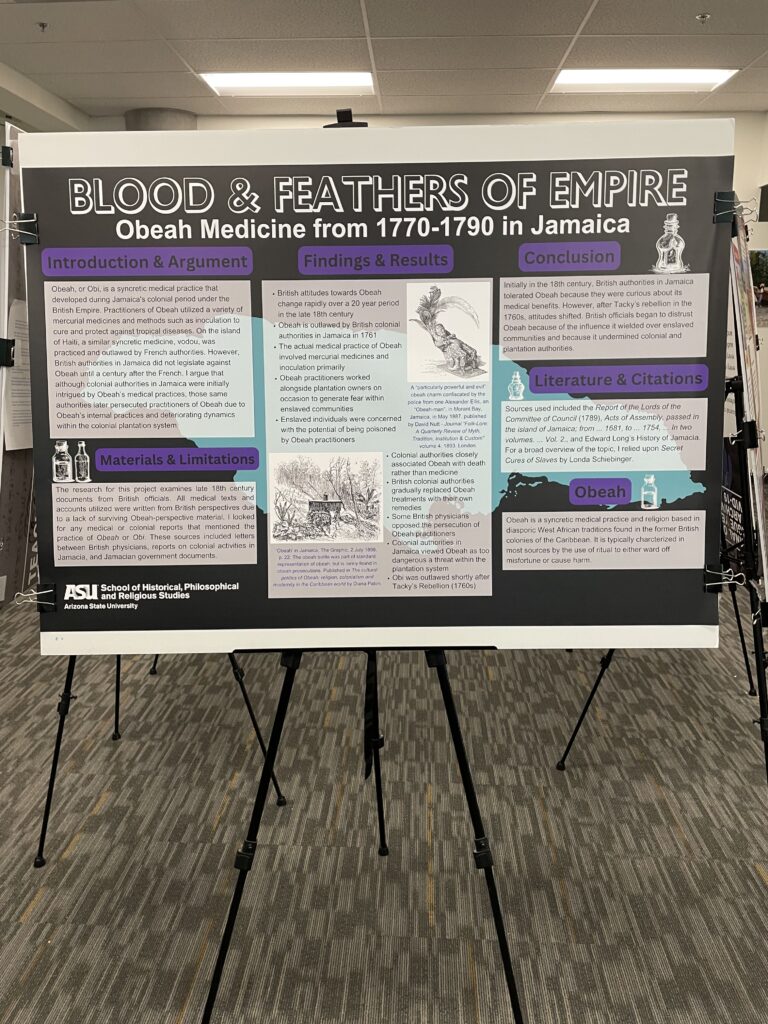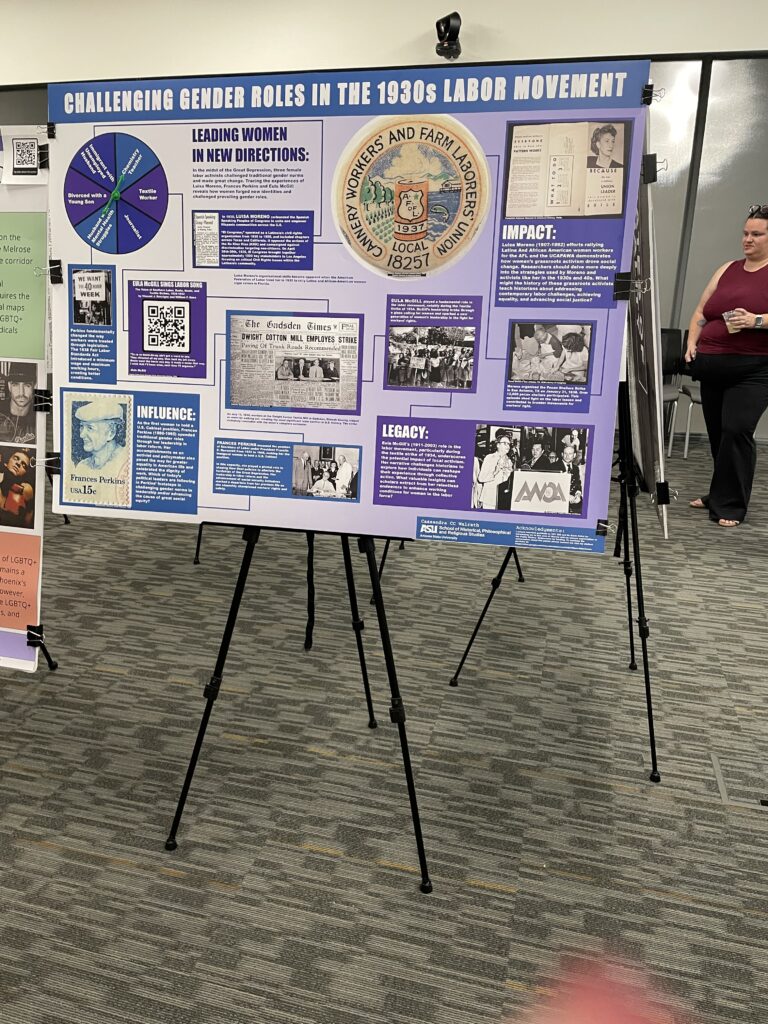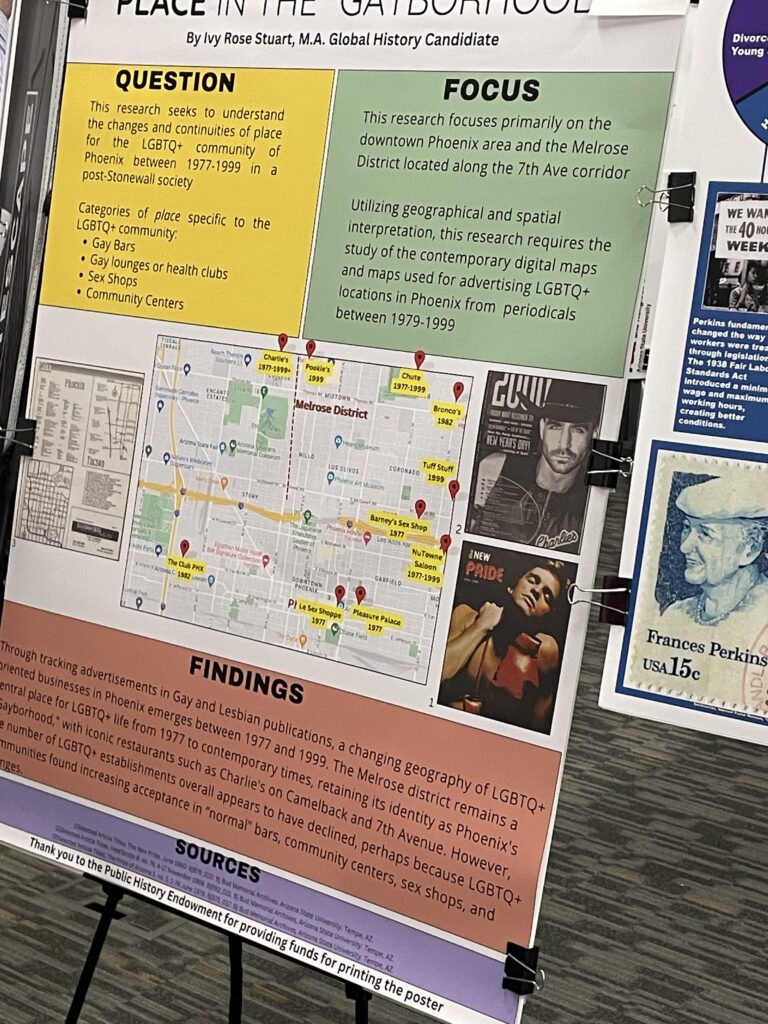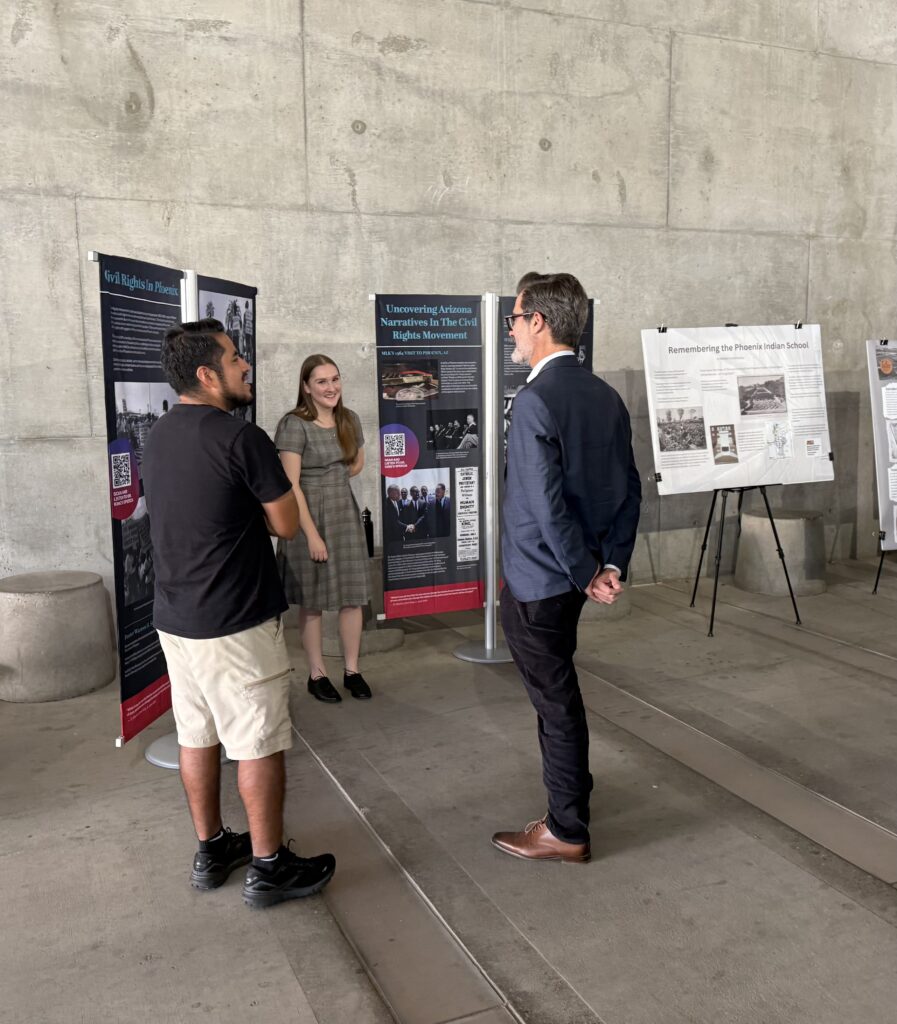For many students, historical research is a solitary pursuit with hours spent researching and writing, resulting in a paper that might only be read by a professor or a small group of peers. Historians, however, do not work in isolation, but are part of a broader community with which they share their research through articles, books, and conference presentations. It is valuable to graduate students to become a part of this broader historical community, and attending or participating in a professional conference is one way graduate students can begin identifying as members of the historical community.
Why Professional Organizations and Conferences Matter
Whether local or national (or international), professional organizations like the American Historical Association (AHA), The Western History Association (WHA), or the National Council on Public History (NCPH) connect students to a national network of scholars. These memberships provide access to journals, job boards, grant opportunities, and career resources tailored specifically to historians. Most professional organizations offer discounted membership rates to students as well as discounted rates for conferences. Students should explore organizations that are relevant to their field of study, and look to smaller, local organizations to build community connections.
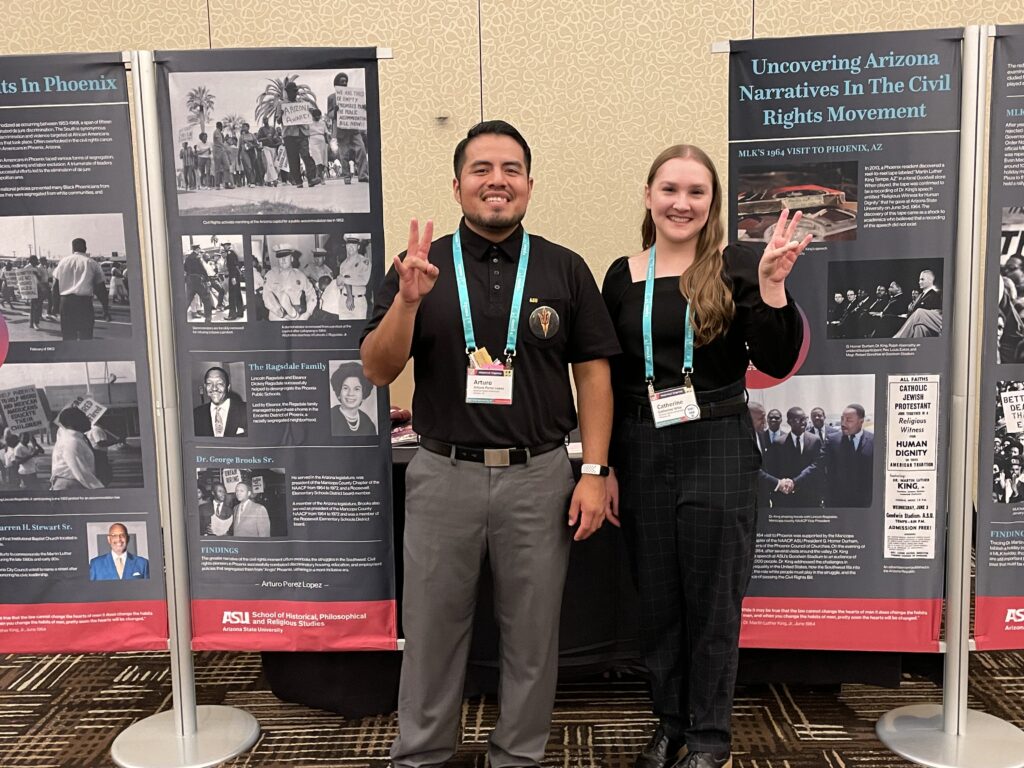
For students interested in a public history career in the cultural heritage sector, organizations such as the American Association of State and Local History (AASHL), the National Trust for Historic Preservation, or a local preservation organization would be good organizations to join or attend trainings and conferences.
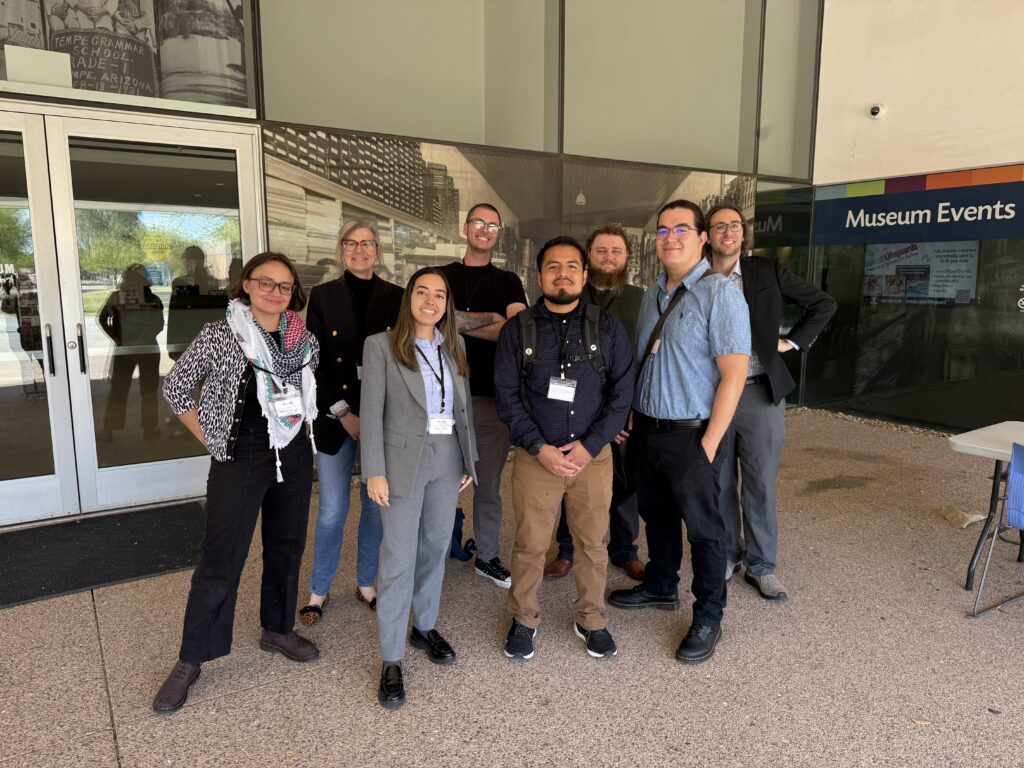
Attending conferences gives graduate students the chance to learn about the latest research, present their own work, receive valuable feedback, and build relationships with fellow scholars. Established historians share their work and model professional skills and behavior at conferences, which is valuable for new scholars to see. Conferences are also a great way to meet other graduate students, creating opportunities for future connections or collaborations. Recent MA graduate Trevor Malley (who participated in the Humanities Week poster session and presented at the Arizona History Convention) shared “Both the poster session and the convention gave me an opportunity to make my research more concise and approachable to the public. I also had a chance to meet a lot of really interesting people at the historical convention which has opened up further opportunities to present my research to the public.”
Benefits of a Poster Session
For students looking to share their own work, a poster session is a great entry point. Whether for a small and local organization or at a large national conference, the format is more informal while still offering meaningful scholarly exchange. Attendees can browse at their own pace, ask questions, and offer feedback. This allows poster presenters to share their work without the stress of a traditional panel or presentation. Poster sessions allow students to participate in the historical conversation with less pressure.
The process of designing a poster challenges you to distill your research into its essential elements: What’s your central question? What argument are you making? What evidence supports it? This act of refinement can be transformative. Online student Kimberly Hotti who presented her poster at the Arizona History Convention described her experience this way: “[It] truly helped me see my topic with new eyes and opened new avenues of research.” By translating your ideas into a visual format, you not only make them more accessible to others, you gain a deeper understanding of your own work.
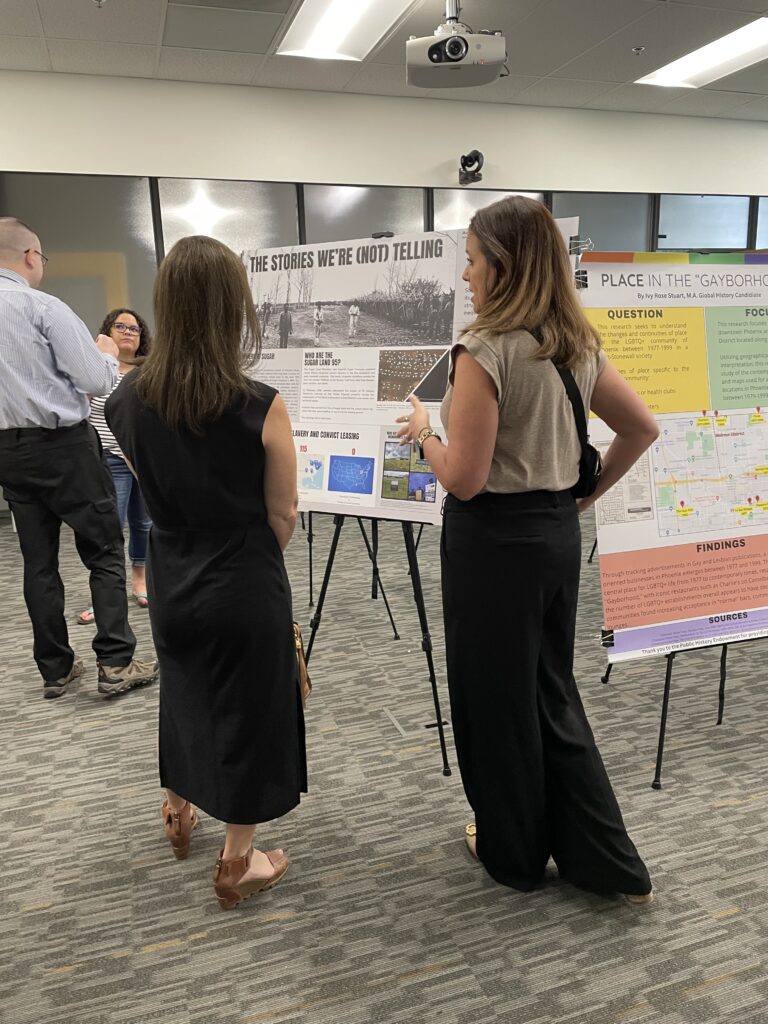
Participating in a poster session also adds a meaningful line on your CV or résumé. It demonstrates initiative, content expertise, and a commitment to scholarly engagement. Participating in a poster session shows that you are interested in actively contributing to your field. It also helps build confidence in your own abilities, and helps you form connections with other scholars.
Start Local and Small
For many students, the idea of submitting a proposal and presenting at a national conference is daunting. However, there are likely organizations and groups near you that offer opportunities. The History Department at SHPRS hosts a poster session each fall during Humanities Week. This event is a low barrier entry point for students to learn about distilling historical research into a poster and presenting to an audience. Other organizations, such as the Arizona History Convention (or your own local history group) can offer opportunities for students to present their work to a larger audience.
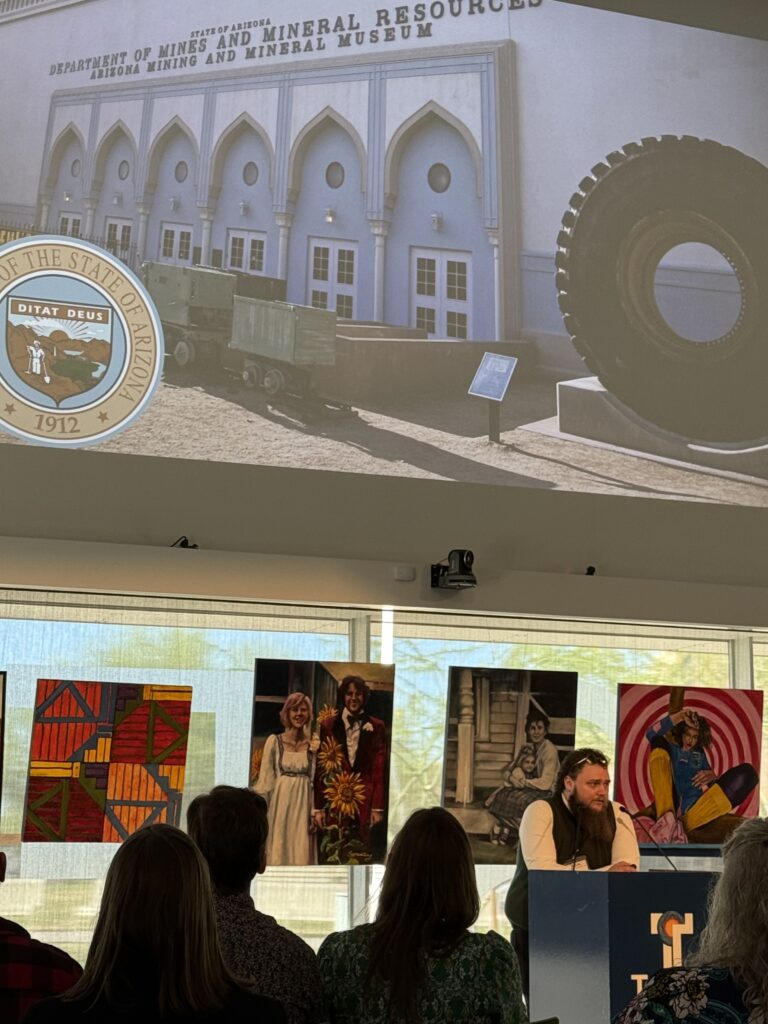
SHPRS support
We encourage our students to attend conferences and present their research to broader audiences. If you are accepted into a poster session or on a panel at a local or national conference, there are funding opportunities available. As the sponsors of the Humanities Week Poster Session, the public history committee will also provide guidance in poster and presentation creation.
